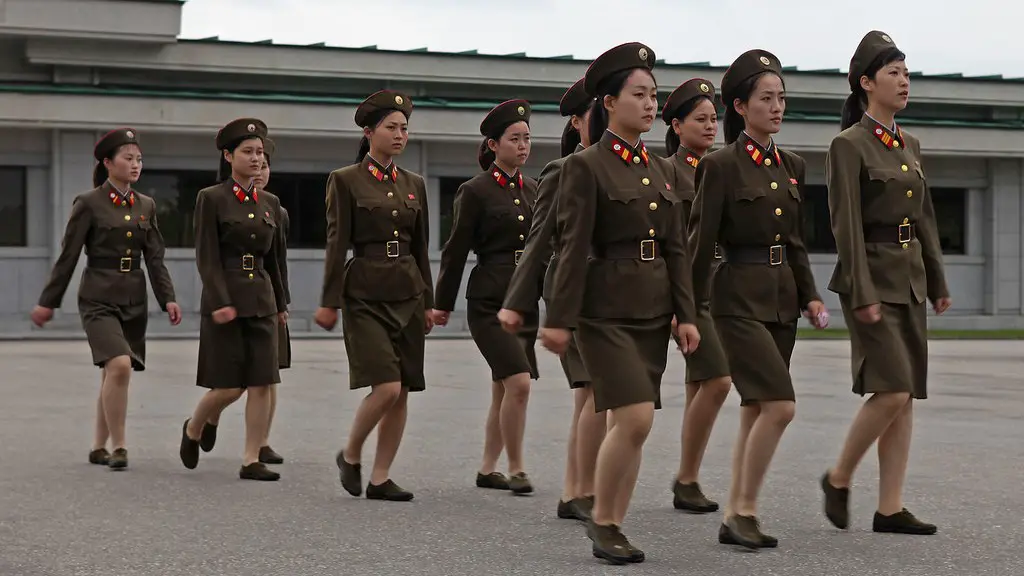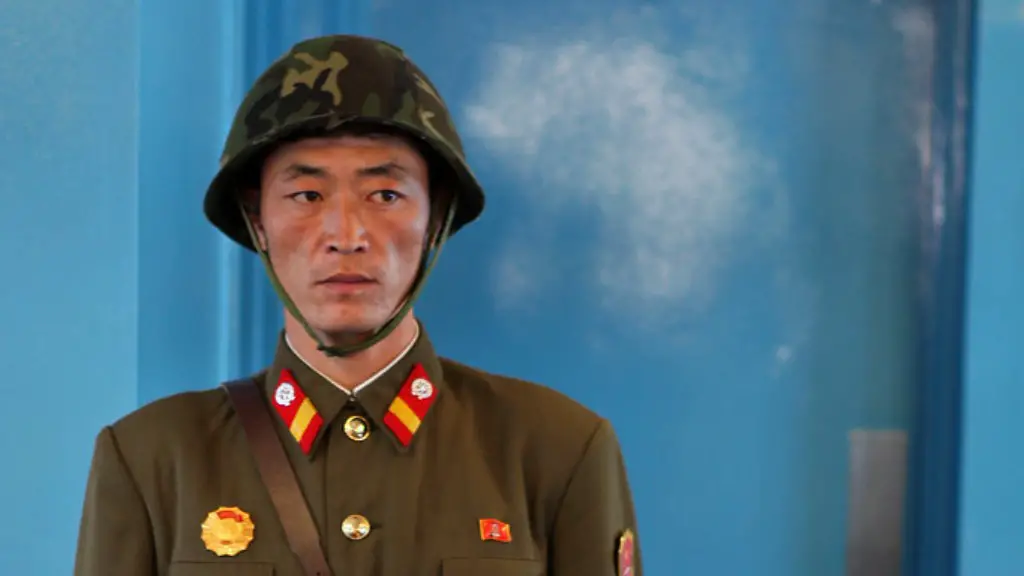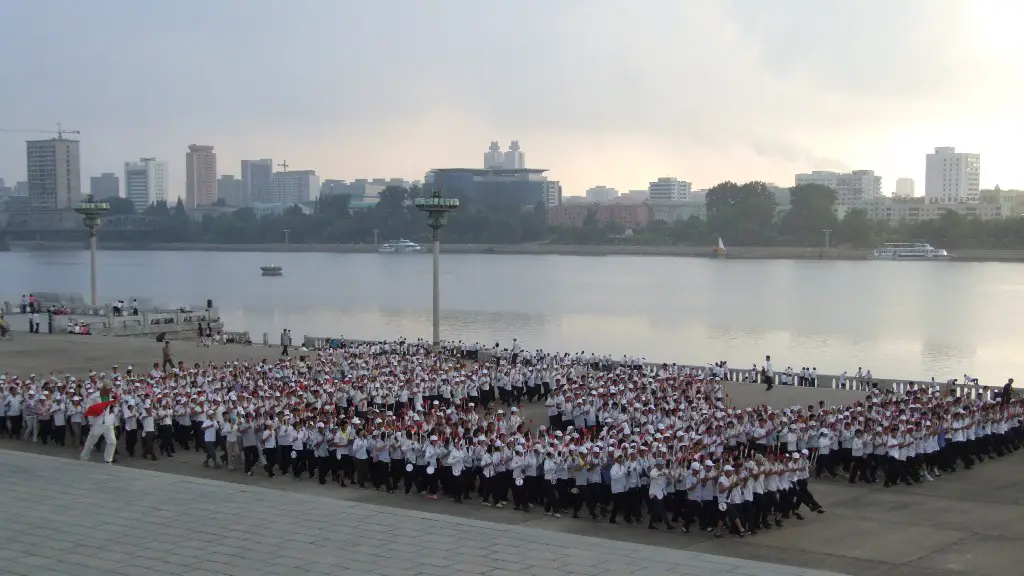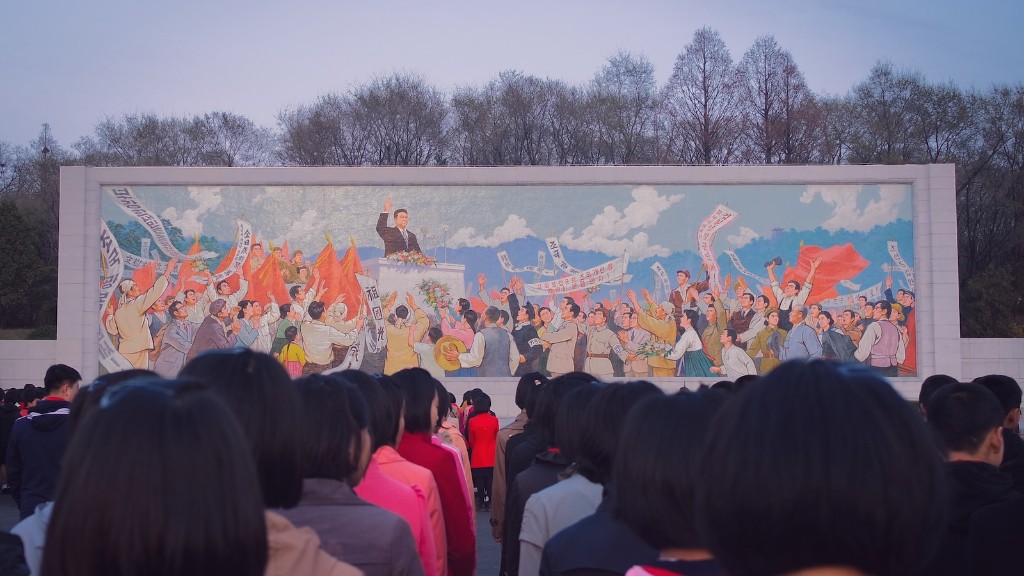Politics & Government
The politics and government of North and South Korea are vastly different. The Democratic People’s Republic of Korea (North Korea) is a one-party state led by the Workers’ Party of Korea, while the Republic of Korea (South Korea) is a multi-party state led by the Democratic Party. North Korea’s leadership has been strongly autocratic since its establishment in 1948, while South Korea has experienced several long-lasting democratic governments. North Korea is known for its human rights abuses and lacks regular elections, while South Korea is considered a full democracy.
Military
The military difference between North and South Korea is striking. North Korea has the world’s fourth largest military, with roughly 1.2 million personnel. The country also fields some of the most advanced weaponry in the world, including nuclear missiles. By comparison, South Korea’s military is much smaller, with the country’s active duty troops numbering just over 600,000. South Korea has received support from the United States, with the two countries signing a mutual defense agreement.
Economy
The economies of North and South Korea are remarkable examples of how two countries can diverge in their economic well-being. North Korea’s centrally planned economy is heavily reliant on the state-owned enterprises, coupled with agricultural and forestry sectors. As such, North Korea’s economy is plagued with extreme poverty, hunger, and inequality. South Korea’s economy, on the other hand, is a thriving free market economy with one of the world’s highest levels of development. The nation ranks as one of the most innovative and competitive countries in the world—as well as one of the most affluent in terms of per-capita income.
Culture
Another defining factor of the differences between North and South Korea is their culture. North Korea is cut off from the influence of the outside world and has no access to foreign media sources, which is why its society is more traditional in nature. This is deeply contrasted in South Korea, where traditional values are quickly eroding in comparison to foreign ideas and trends.
Reconciliation
The most obvious difference between North and South Korea is their relationship. While North Korea has fiercely defended its brutal regime, South Korea has made remarkable efforts to foster a more peaceful and reconciliatory atmosphere between the two countries. Today, South Korea remains open to dialogue and reconciliation with the North, seeking on-site inspections for nuclear weapons, and advocating for the protection of survivors of the Korean War.
History
One of the main differences between North and South Korea lies in their history. North Korea was established in 1948, when the country was liberated from Japanese colonial rule, while the South was created after the three-year Korean War that saw the reunification of the Korean peninsula. During this war, North Korea’s economy was heavily damaged, while South Korea enjoyed a booming economy and increasing political clout.
Geography
The geography of North and South Korea also tells a story of distinct differences. North Korea is located at the northern edge of the Korean Peninsula, which is notoriously mountainous and cold. South Korea is located at the southern end of the peninsula, which has a much milder climate, making it ideal for the country’s agricultural exports and tourism industry.
Political Climate
The political climate between North and South Korea is one of apprehension and mistrust. North Korea continues to aggress and frequently threatens military action, while South Korea and its allies take defensive measures. North Korea has been subject to intense international sanctions since its nuclear weapons program began, while South Korea has adopted a measured approach towards its neighbour. This difference in political climates between the two countries makes it difficult to envision a future of peace and reconciliation.
Diplomatic Relations
The relationship between North and South Korea is almost nonexistent in terms of diplomacy. North Korea has refused to conduct meaningful negotiations with its neighbour, despite South Korea’s repeated efforts. So far, the only diplomatic tete-a-tete the two countries have agreed to have been during the 2018 Winter Olympics, when representatives from both sides met. Unfortunately, these meetings have not yielded much in terms of progress towards a peaceful resolution of the long-standing conflict between the two countries.
Nuclear Weapons Program
The North Korean government has been quite vocal about its nuclear weapons program. It has used this program as a tool to assert itself militarily and as an economic lever against its neighbours. The South Korean government, however, has steadfastly rejected nuclear weapons, opting instead to pursue peaceful resolutions to the issues with its northern neighbour. This clear distinction has allowed South Korea to remain a key ally of the United States and its other allies in the region while North Korea has become increasingly isolated.
Media Access
Access to international media is almost completely absent in North Korea, with the government heavily censoring what its citizens can watch, listen to, and read. This tight control of media has served to indoctrinate the North Korean population, while South Korea’s media access is significantly more open and dynamic. South Koreans are regularly exposed to news, entertainment, and culture from the outside world, while North Koreans remain largely ignorant of what lies beyond their borders.
Education
The educational systems of North and South Korea are drastically different. North Korean schools are heavily focused on teaching Communist ideology and maintaining tight social control, while South Korean schools emphasize academic achievement and provide students with greater access to the outside world. South Korea also has a much higher literacy rate than its northern neighbour, with almost all South Koreans able to read and write.



